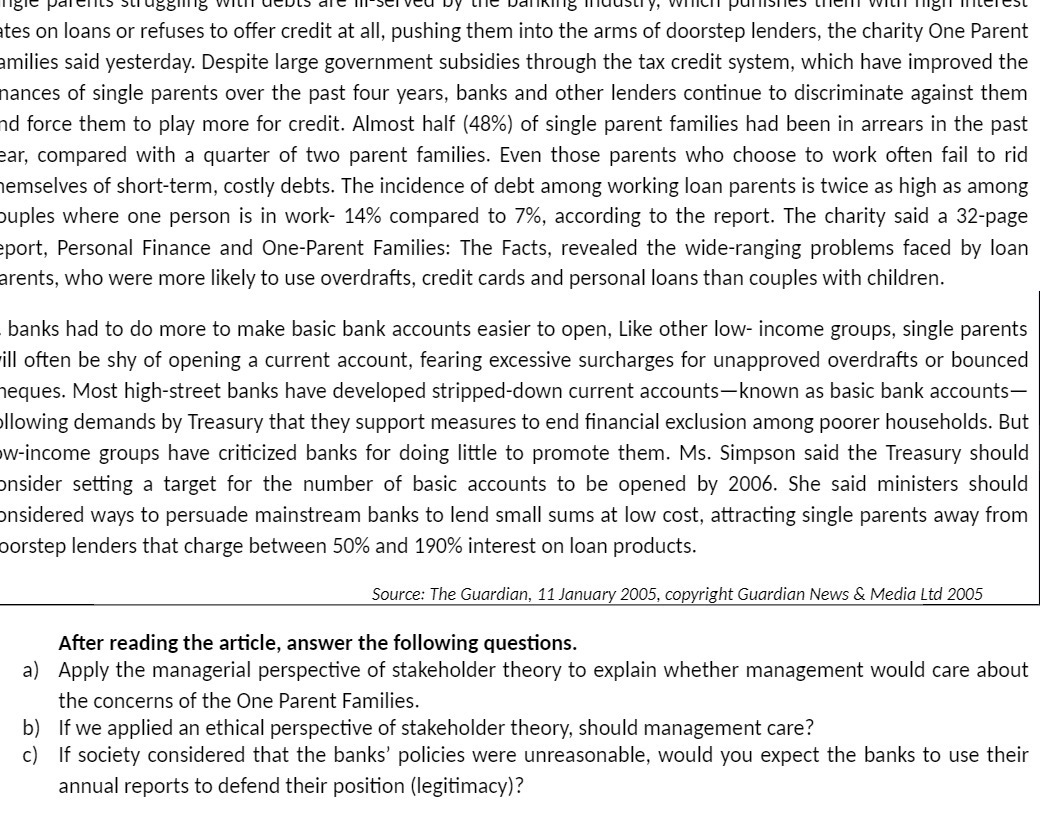\"5\": pmcms suugguug mu. ucms an: nrsc. vcu uy we mum\"; muusu y, mm... pu...s..cs me... mu. \".5.- "nu-cu ates on loans or refuses to offer credit at all, pushing them into the arms of doorstep lenders, the charity One Parent amilies said yesterday. Despite large government subsidies through the tax credit system, which have improved the nances of single parents over the past four years, banks and other lenders continue to discriminate against them ~Id force them to play more for credit. Almost half (48%) of single parent families had been in arrears in the past aar, compared with a quarter of two parent families. Even those parents who choose to work often fail to rid 1emselves of short-term, costly debts. The incidence of debt among working loan parents is twice as high as among Juples where one person is in work 14% compared to 7%, according to the report. The charity said a 32-page aport, Personal Finance and One-Parent Families: The Facts, revealed the wide-ranging problems faced by loan arents, who were more likely to use overdrafts, credit cards and personal loans than couples with children. . banks had to do more to make basic bank accounts easier to open, Like other low- income groups, single parents rill often be shy of opening a current account, fearing excessive surcharges for unapproved overdrafts or bounced 1eques. Most high-street banks have developed stripped-down current accountsknown as basic bank accounts :llowing demands by Treasury that they support measures to end nancial exclusion among poorer households. But lw-income groups have criticized banks for doing little to promote them. Ms. Simpson said the Treasury should Jnsider setting a target for the number of basic accounts to be opened by 2006. She said ministers should Jnsidered ways to persuade mainstream banks to lend small sums at low cost, attracting single parents away from oorstep lenders that charge between 50% and 190% interest on loan products. Source: The Guardian, 11 January 2005, copyright Guardian News & Media Ltd 2005 After reading the article, answer the following questions. a) Apply the managerial perspective of stakeholder theory to explain whether management would care about the concerns of the One Parent Families. b) If we applied an ethical perspective of stakeholder theory, should management care? c) If society considered that the banks' policies were unreasonable, would you expect the banks to use their annual reports to defend their position (legitimacy)







